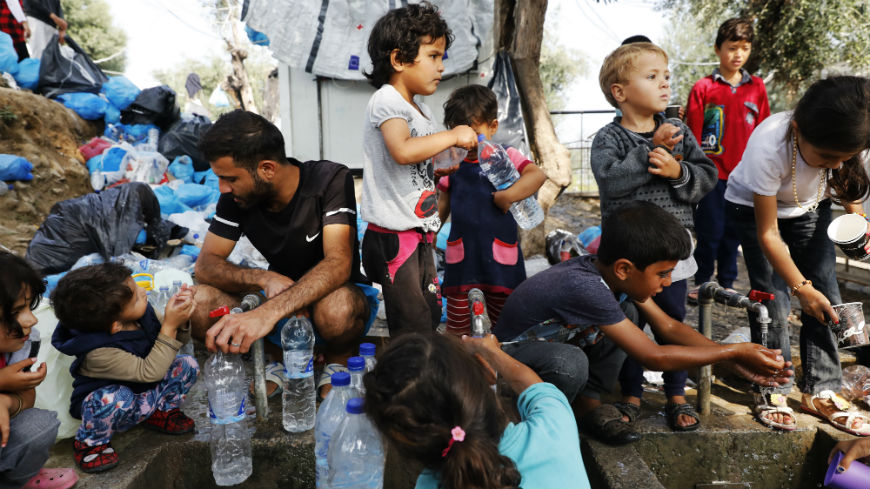“The situation of migrants, including asylum seekers, in the Greek Aegean islands has dramatically worsened over the past 12 months. Urgent measures are needed to address the desperate conditions in which thousands of human beings are living,” said today the Council of Europe Commissioner for Human Rights, Dunja Mijatović, at the end of a five-day visit to Greece during which she visited reception facilities in Lesvos, Samos, and Corinth.
The Commissioner is appalled by the unhygienic conditions in which migrants are kept in the islands. “It is an explosive situation. There is a desperate lack of medical care and sanitation in the vastly overcrowded camps I have visited. People queue for hours to get food and to go to bathrooms, when these are available. On Samos, families are chipping away at rocks to make some space on steep hillsides to set up their makeshift shelters, often made from trees they cut themselves. This no longer has anything to do with the reception of asylum seekers. This has become a struggle for survival.”
Praising the strength of the asylum seekers and the solidarity of humanitarian staff and local communities who are trying to bring some measure of dignity to the camps, the Commissioner calls on the Greek authorities to take urgent measures to meet the vital needs of all these people and safeguard their human rights. “If not urgently and adequately addressed, these abysmal conditions, combined with existing tensions, risk leading to further tragic events,” she adds.
The Commissioner welcomes the Greek government’s decision to transfer 20,000 migrants from the islands to the mainland by the end of this year and calls for its implementation as a matter of urgency. “However, without lifting the geographical restriction, this plan is unlikely to significantly reduce the overcrowding in the islands.”
The Commissioner takes note of the law currently being discussed by Parliament which aims to speed up asylum procedures and returns. “The law and its implementation must not lead to more and longer detention and must ensure that all asylum seekers have their claims assessed in an individual way, with effective remedies available to challenge rejections.”
She also recommends strengthening the humanitarian assistance to those that remain or will arrive on the islands. “The authorities must boost the capacities of local hospitals, set up ad hoc medical facilities in the reception camps and increase the number of health care professionals in the islands in order to provide migrants and local residents with the medical care they are entitled to”.
Other practical measures with an immediate impact, such as improving the distribution of food and providing more washing facilities and toilets, can and must be taken.
The Commissioner commends the financial support provided by the European Union, but underscores that funds alone will not solve the problem. “The Greek authorities must overcome all the bureaucratic obstacles that are hindering the effective use of these funds. At the same time, European countries must take more responsibility in providing ways for relocating people from Greece to other member states, giving Greece breathing space to make structural improvements. Unaccompanied minors should be among the groups prioritised for relocation. Family reunifications for those with family members in other member states should also be sped up urgently.
Lastly, Greece and the EU should also promptly consider how services for local communities can be better supported. They have been generously hosting large numbers of refugees and migrants for many years now, but their exasperation with the current, untenable situation is undeniable.
“There is no lack of information available to European countries on how to handle the migration flows in a coordinated, safe and organised manner which upholds the human dignity and rights of migrants. Right now, the people on the islands do not need another summit nor another co-operation agreement. What they urgently need is that political leaders stop looking away and finally implement the measures that everyone is aware of, but no-one seems ready to embrace.”



